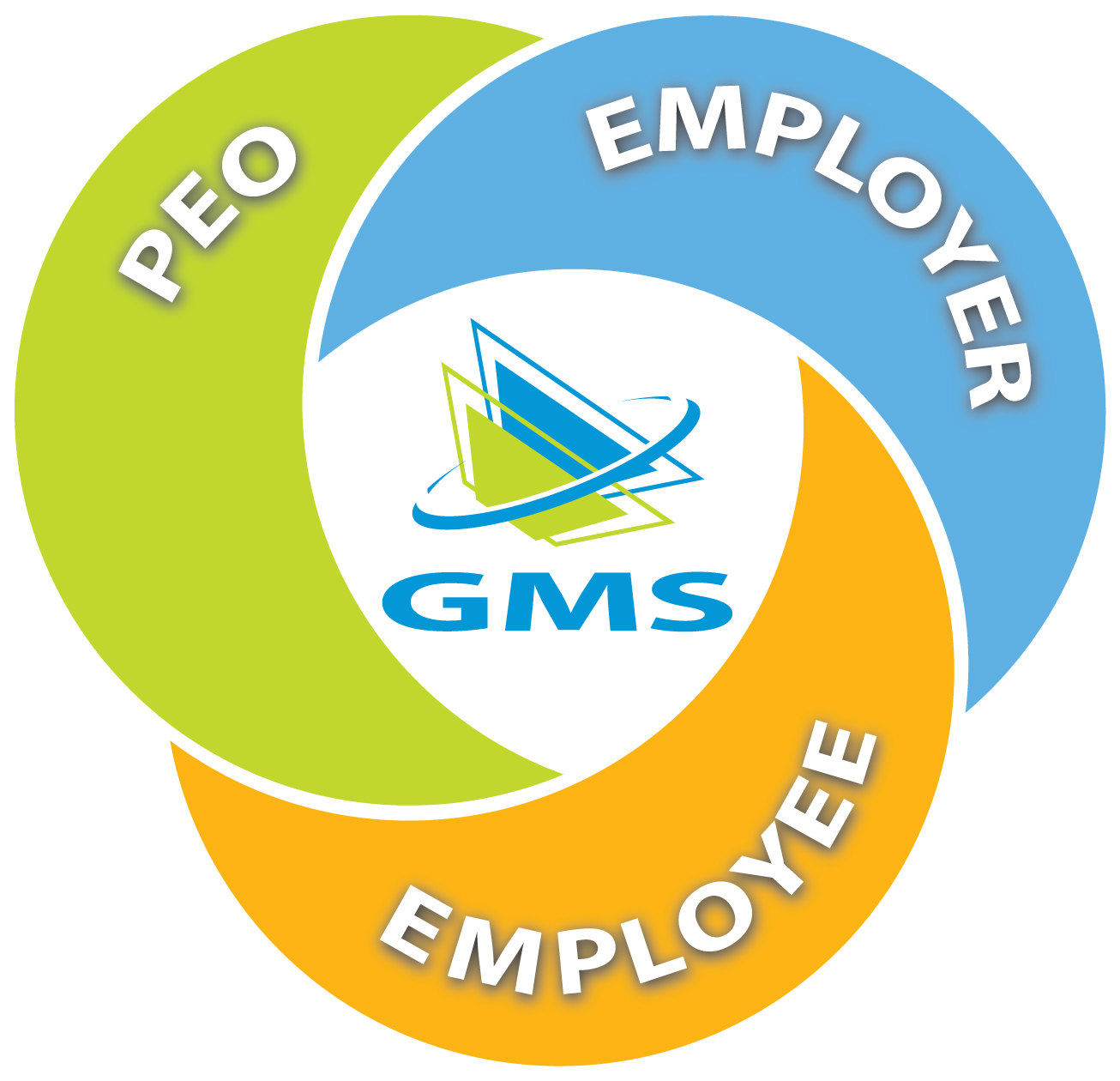When you’re entrusting your business’ administrative needs to another company, it’s critical that you find the right partner. A Professional Employer Organization (PEO) provides comprehensive HR solutions, but some may be a better fit for your exact business needs than others.
There are a variety of reasons why you’d want to switch – additional services, better administrative services, costs, etc.. Whether you want to switch for one major reason or a variety of issues, don’t be afraid to explore your options. Here’s what it takes to make the switch from one PEO to another.

The Four Steps to Switching PEOs
There are four main steps you need to take when it’s time to make the switch to a new PEO:
- Evaluation
- Information gathering
- Quote comparison
- Implementation
Evaluation
There are a variety of ways that you can find potential new partners – online research, recommendations from other business owners, etc. – but it’s important to know exactly what you want out of your new PEO. The types of services and support you want not only has a direct effect on which PEO is right for you but also impacts the transition process. As such, you’ll want to weigh the following factors.
- The types of services you need
- Administrative support and technology
What services do you want to switch?
When you switch to a new PEO, you’ll want to identify which HR functions you want them to manage. Some PEOs offer a full suite of services, including payroll, worker’s compensation, and a variety of benefits. Others may limit themselves to just payroll and workers’ compensation. If those additional services are important to you, you’ll need to vet each PEO to make sure they can expertly manage the HR functions that are important for your business.
It’s also crucial to understand that you may need to switch multiple services over at the same time. For example, if your last PEO took care of both payroll and benefits, both of those functions must be switched over together – you can’t have one PEO handle payroll and the other handle benefits. If you have your benefits through a broker, you can switch to a new PEO for payroll without moving the benefits.
Administrative support and technology
One big reason to switch to a new PEO is that you’re unsatisfied with the level of support they provide. There are a variety of potential support issues:
- You need localized support to help with onboarding and other needs.
- You don’t have dedicated representatives for your administrative needs.
- You encounter lengthy delays when you or your employees have questions regarding payroll, benefits, and other services.
- You feel like just another number.
You and your employees shouldn’t ever feel like you’re stranded. Make sure to ask each potential PEO about their administrative support. A good partner should have a team in place to manage your HR functions and assist you with any potential questions. If they can’t give you details about your contacts and their process, they may not have the means to give you the support you need.
You should also take technology into account. Features like electronic onboarding, self-service portals, and other technology can make it easy for you to access your administrative needs in one spot and give employees the means to access important details like paystubs, benefits plans, 401(k), and more.
Information gathering
Once you weigh your different options, it’s time to get some quotes from viable PEOs. This process typically starts with a meeting so that the PEO can gather some key information. During this meeting, you’ll want to share what you liked about your previous PEO, what you didn’t, and how you’d like to improve on your situation.
While you can get a lot of useful information during this process, your potential PEO also has a few questions for you regarding the following.
- Payroll information
- Benefits information
- Timing
Payroll information
A PEO will require some details and documents in order to evaluate your current situation and provide accurate quotes for your needs. For payroll, that includes the following:
- Your first invoice of the year.
- Your most recent invoice.
- A third invoice from the same year that highlights a typical payroll period.
- A rate determination sheet for state unemployment.
These documents will allow your PEO to conduct financial analysis for your business to extrapolate and forecast your projected payroll for the full year. It will also help the PEO identify opportunities, whether that means uncovering savings related to workers’ compensation, unemployment rates, or more.
Benefits information
If you plan to switch health insurance as well, your PEO will need to gather some information from the employees on your group health plan. This information includes:
- Your most recent insurance bill.
- Your renewal packet.
- Your plan designs.
The PEO will also need to conduct some form of group application to accurately underwrite your group. The exact process depends on how many employees are on your plan. If you have fewer than 28 employees – this does not include dependents – the PEO would need each participating employee to complete a two-page personal health questionnaire. If you have 28 or more employees on your plan, the PEO can conduct a census quote. This process simply requires a list of the participating employees to generate a quote instead of individual applications.
Timing
It’s important to consider more than just who you want to manage your HR functions. You’ll want to identify when this transition will need to take place.
In general, it makes sense to try and time up a transition with the beginning of a new quarter (or even year depending on the size of your company). Once you change PEOs, you switch federal IDs in the middle of a payroll season, which can lead to multiple W2s and potential confusion for you and your employees.
By timing the transition at the beginning of a year or quarter, you can streamline the transition for tax purposes. This transition process can take a good four to six weeks, but it’s heavily dependent on each situation. As such, you’ll want to give yourself enough time to switch to a new PEO when it best suits your company.
Quote comparison
Once you’ve received quotes from your potential new PEOs, it’s time to evaluate each one to find which company offers the most value to your business. You’ll want to find a PEO that is not only competitively priced, but also offers you all the services and the support necessary to streamline running your business.
It’s also important to factor in how your PEO plans to bill your company. Some PEOs have bundle billing where they tie administrative fees and various rates (ex. social security, unemployment, etc.) into a single line item. This can make parsing out each cost confusing. For example, you might not be sure whether you’ve capped your unemployment costs. State unemployment caps once employees earn $9,000, while federal unemployment caps at $7,000. This change can be hard to see with a bundled bill, which means you may be paying more than what you should.
Instead, look for PEOs that are willing to break out each line item. This way you can see what you’re being charged for social security, Medicare, federal unemployment, state unemployment, workers’ compensation, health insurance, and administrative fees.
Implementation
When you’ve finally picked out your next PEO, it’s time to officially switch over to your new partner. As you may expect, you’ll need to complete some paperwork in order to start the process. This includes:
- A service agreement.
- An AC-2 form (Request to Add/Change or Terminate Permanent Authorization).
- A UA-3 form (Professional Employer Organization Client Relationship Notification).
Depending on the PEO, you can either sign physical documents or submit these items electronically if the company is paperless. Once the initial paperwork is filed, your PEO would begin the implementation process. The implementation process can differ for each PEO. At GMS, a dedicated account representative would assist you throughout the implementation process. This person would also set up training sessions to make sure you’re comfortable with internal systems for payroll, benefits, etc.
For payroll, you would receive an electronic onboarding spreadsheet to complete. Once the spreadsheet is done, an email will go out to the employees to have them fill out forms (I-9, W-4,), set up direct deposit, and enter into our system. If you sign on for benefits, you would also have a dedicated benefits representative as well. This person can go on-site or arrange virtual meetings to meet with employees, roll out your benefits, go over plans, and educate everyone on how their benefits work so that everyone is on the same page.
During this whole process, we would also send your previous PEO a termination notice. Your past PEO may require a written notice of termination – 30-day notice is typical. We would also detail any remaining tax obligations over other final items in the termination letter so that the former PEO will comply with their responsibilities.
Find the Right PEO for Your Business
When you run a business, it’s imperative to find the right administrative solution for your business. Managing HR functions is a critical part of any company, but it also puts a massive burden on your shoulders. The right PEO can free you up to focus on growing your business while giving you the administrative support you deserve.
At GMS we strive to make your business simpler, safer, and stronger. Contact GMS today to talk to one of our experts about how we can help you take control of your HR functions.








